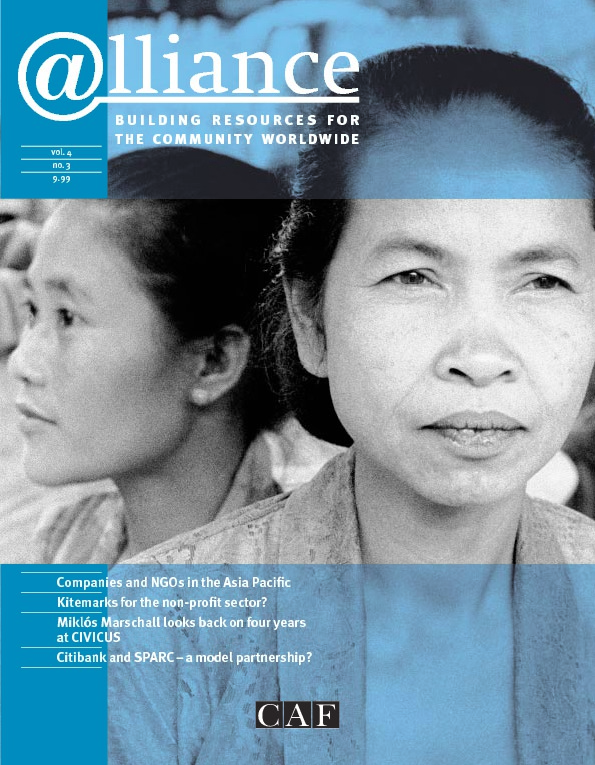This is primarily a political document rather than an academic book. Unless readers keep this in mind, they will soon feel impatient with the various essays, and frustrated with the many claims that benefit all too infrequently from supporting evidence. The book’s authors, in particular Kumi Naidoo, Rajesh Tandon and Barry Knight, are making fundamental political points not only about civil society but also about CIVICUS itself.
The basic argument comes in six steps.
1 At the centre is the individual citizen, endowed with rights and responsibilities, interested not only in his or her own well-being but also in striving for sustainable development and a healthy public life.
2 A network of institutions enables citizens to participate in, and shape, civil society.
3 Civil society is the bedrock for human development and democratic governance, and ultimately makes a just and humane society possible.
4 Associations and values are part of civil society only if they demonstrate ‘civic values and democratic practices that include tolerance, inclusion, non-violence, commitment to promoting the public good, and so on’ (p 13).
5 Civil society is nothing less than the missing component that neither socialism nor capitalism has; a civil society-centred approach to development will ultimately bring about a world with greater equity and better quality of life.
6 As ever more aspects of modern life have international, even global, dimensions, we need an organization that looks after the interests of citizenship and civil society on the world stage, ie CIVICUS.
Most contributors to the volume are not shy about the essentially normative thrust of this type of reasoning, and none seems troubled by the a priori and circular quality of some of the argument. For the book and many of its authors, civil society frequently seems diagnosis, solution and future alike.
I have no quarrel in principle with the normative tone of the book. CIVICUS has a mission, and the book is one way of furthering it. And this is what the book does well … at least up to a point: if you are convinced of the virtues of civil society, the book will make you even more convinced. If you are sceptical about the future of government and uncertain about the emerging world order (or disorder as most of the book’s authors call it), the volume will leave you even more sceptical and uncertain, and hence persuade you of the virtues of civil society in counteracting the ill effects associated with the weakness of public institutions and the fragility of global markets.
I am less certain that the book would convince those who think civil society not much more than a fashionable term, or those who favour ‘old-fashioned’ party politics over the chaos of civil society organizations all engaged in pursuing their special interest.
Does this matter? I think so, and for two reasons. One problem is the reification of civil society – the tendency to treat as one coherent entity what is made up of thousands of different parts that may or may not see themselves as an element of civil society. The book frequently argues as if there were some civil society equivalent to the ‘invisible hand’ of market economics.
But there is a more fundamental problem. If CIVICUS, as the body responsible for global civil society, decides what is ‘good’ and ‘bad’ democratic governance, what is ‘healthy’ and ‘unhealthy’ in public life, what is included in civil society and what is not, then we must ask a number of critical questions: on what basis and for whom does CIVICUS decide, and in what political and cultural context? On what is its legitimacy based? The book remains painfully silent on many of these ‘thorny issues’. CIVICUS must begin asking the difficult questions if it wants to be more than just another group positioning itself in the emerging field of global interest politics.
Helmut K Anheier is Director of the Centre for Voluntary Organization at the London School of Economics.
Civil Society at the Millennium edited
Kumi Naidoo Kumarian Press $18.95
To order, phone KP on +1 860 233 5895 or fax +1 860 233 6072



Comments (0)